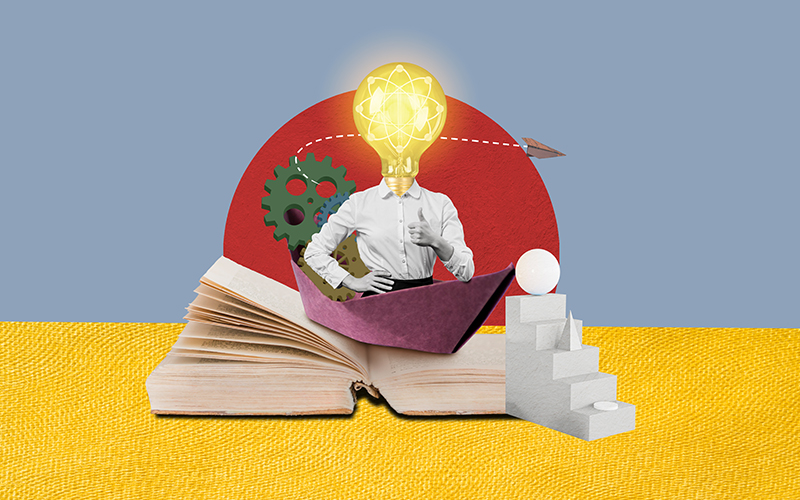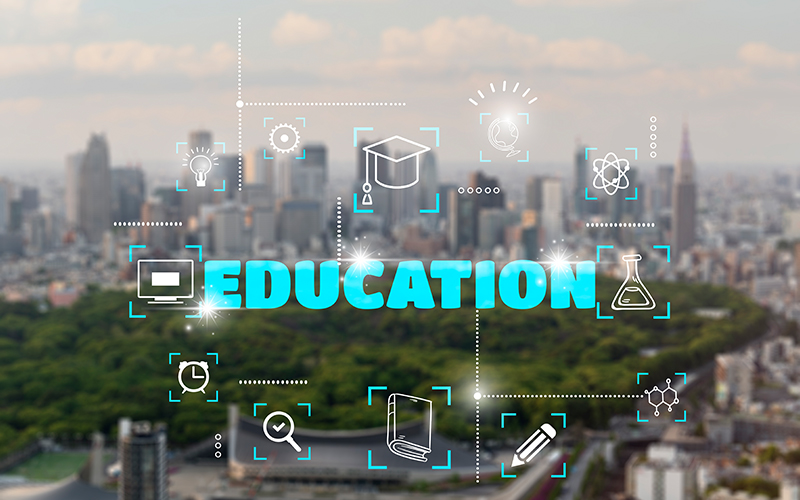Introduction
In today’s rapidly evolving world, traditional educational methods are no longer sufficient to prepare students for the challenges of tomorrow. As industries transform and new technologies emerge, the future of education hinges on innovative approaches to learning and skill development. This article delves into the cutting-edge advancements shaping the landscape of education, from AI-powered adaptive learning systems to immersive virtual reality experiences.

1. Technological Advancements in Education
1.1 AI-driven Learning Platforms
Artificial Intelligence (AI) is revolutionizing the way students learn by providing personalized, adaptive learning experiences. These platforms analyze student data to tailor lessons to individual needs, offering targeted support and feedback to enhance comprehension and retention.
1.2 Virtual Reality Classrooms
Virtual reality (VR) technology is transforming traditional classrooms into immersive learning environments. Students can explore historical sites, dissect virtual organisms, and conduct experiments in simulated laboratories, providing hands-on experiences that transcend the limitations of traditional teaching methods.
1.3 Gamification of Learning
Gamification integrates game elements into educational content to increase engagement and motivation. By incorporating rewards, challenges, and interactive activities, educators can make learning more enjoyable and effective, fostering a deeper understanding of complex concepts.
2. Skill Development in the Digital Age
2.1 Coding and Programming
In an increasingly digital world, proficiency in coding and programming has become essential for success in many industries. Educational programs and coding boot camps offer hands-on training in languages like Python, JavaScript, and HTML, empowering students to pursue careers in software development, cybersecurity, and data science.
2.2 Digital Literacy
Digital literacy encompasses the skills needed to navigate and thrive in today’s digital landscape. From basic computer skills to advanced internet research techniques, digital literacy education equips students with the knowledge and abilities to critically evaluate information, communicate effectively online, and safeguard their digital identities.
2.3 Soft Skills Training
In addition to technical competencies, employers place a premium on soft skills such as communication, collaboration, and problem-solving. Innovative programs and workshops focus on developing these interpersonal abilities, preparing students to succeed in diverse professional settings and adapt to evolving workplace dynamics.
3. Challenges and Opportunities
3.1 Accessibility and Equity
While technology offers unprecedented opportunities for learning, access remains a significant barrier for many students, particularly those in underserved communities. Addressing issues of digital equity and ensuring all students have access to high-quality educational resources is crucial for creating a more inclusive future.
3.2 Ethical Considerations
As technology continues to shape the future of education, ethical considerations surrounding data privacy, algorithmic bias, and digital citizenship come to the forefront. Educators and policymakers must navigate these complex issues to ensure that technological advancements are used ethically and responsibly in educational settings.
3.3 Lifelong Learning
In today’s rapidly evolving job market, lifelong learning has become essential for career success and personal growth. Embracing a mindset of continuous learning allows individuals to adapt to changing industry trends, acquire new skills, and remain competitive in an increasingly dynamic global economy.
Internal links : https://mrbabar.online/crisis-communication-in-the-digital-age-strategies-for-effective-messaging/
External links :
The future of education is being reshaped by a variety of technological and pedagogical innovations. Key trends include the integration of AI, virtual reality (VR), and gamification, which are not only enhancing learning experiences but also personalizing education to better meet the needs of individual students. For instance, AI tools are helping automate tasks like grading and lesson planning, giving teachers more time to focus on their students’ development
Home Page. Meanwhile, immersive technologies like VR are providing students with engaging, interactive learning experiences that can simulate real-world environments
Additionally, educational reforms are being guided by the concept of “leapfrogging,” which advocates for accelerating progress in teaching methods to close educational gaps and promote lifelong learning. Innovative pedagogies like storytelling and problem-solving are becoming central to making education more impactful and accessible
For more insights into the future of learning, you can explore the following resources:
- McKinsey: The Skills Revolution and the Future of LearningMcKinsey & Company
- Stanford Report: How Technology is Reinventing K-12 EducationHome Page
- Brookings Institution: Innovations in Teaching and LearningBrookings
